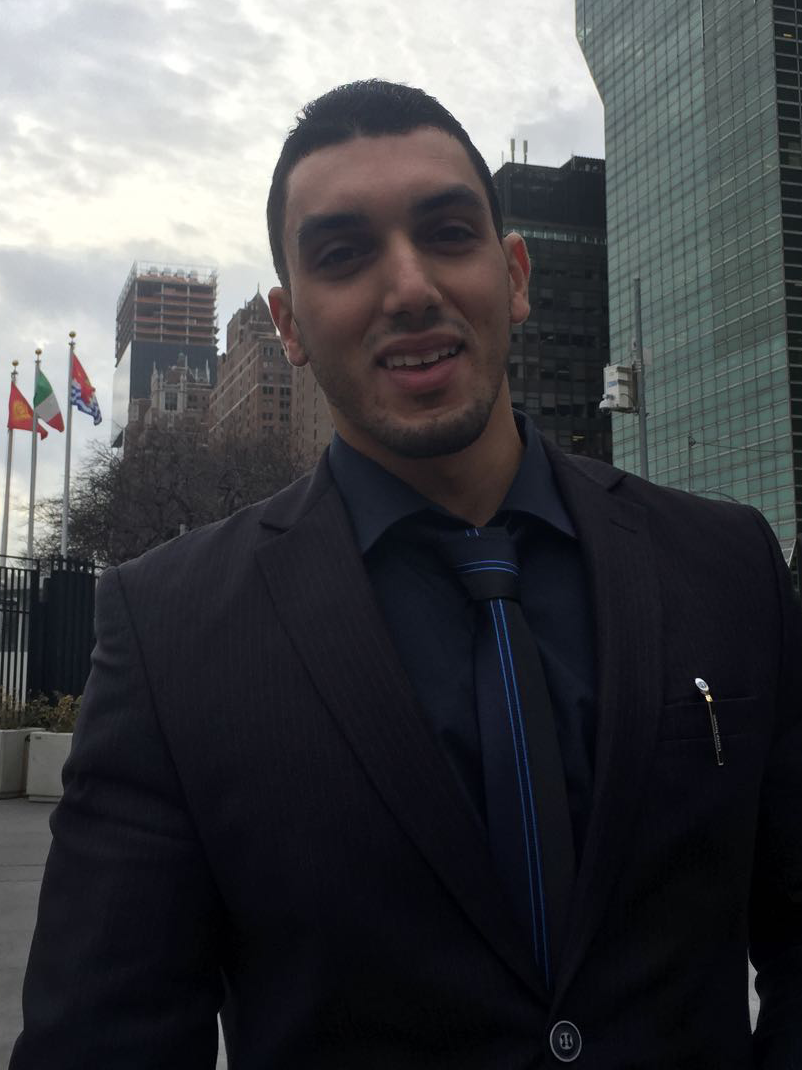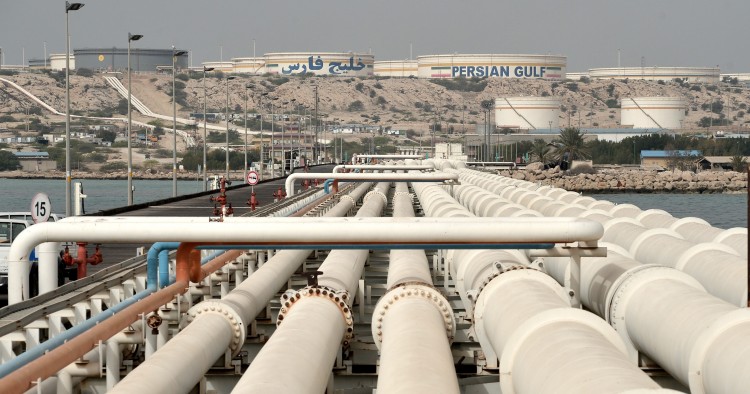In this week's Monday Briefing, MEI experts Gerald Feierstein, Marvin G. Weinbaum, Randa Slim, Emadeddin Badi, and Robert S. Ford provide analysis on recent and upcoming events including the US decision to end Iran oil waivers, the flagging Afghan peace process, Iraq's evolving regional policy, the status of General Hifter's offensive in Libya, and Russia's maneuvering to control the upcoming Syria talks in Astana.
US and key partners on course for conflict over Iran oil waivers
Gerald Feierstein
Senior Vice President

The White House surprised the global energy market with its announcement, early on April 22, that the U.S. would not extend the Significant Reduction Exceptions, or Iran oil waivers, past their expiry dates in early May. Oil prices spiked on the news, which could result in some 1 million barrels of oil a day taken off of an already tightening market.
The decision was likely the result of a round of Washington’s consultations with Saudi and Emirati leaders in recent days, including a phone conversation last week between President Donald Trump and de facto Emirati leader Mohammed bin Zayed, the crown prince of Abu Dhabi. Both the Saudi and Emirati governments welcomed the U.S. announcement. Nevertheless, the Saudi government’s response was more muted than the White House pledge that the three governments “will take timely action to assure that global demand is met.” The Saudi statement promised that it will coordinate with its OPEC partners to “ensure a well-balanced and stable oil market for the benefit of producers and consumers …”
Five of the original eight recipients of the waivers — China, Japan, South Korea, India, and Turkey — had anticipated that the waivers issued last November would be extended for an additional six months. Their compliance with the eleventh-hour White House demand that they end purchases immediately of Iranian oil or face U.S. financial sanctions will be difficult, if not impossible, to achieve. Beijing has already denounced the U.S. decision and declared that it would “uphold the legitimate rights and interests of Chinese companies.” The other four will likely also push back against the U.S. decision in the coming days.
A flagging Afghan peace process
Marvin G. Weinbaum
Director for Afghanistan and Pakistan Studies

Momentum toward reaching a peace agreement in Afghanistan was thought likely to accelerate with three events in April. An intra-Afghan dialogue in Qatar was slated this past weekend to bring a diverse group of Afghans outside of government together with members of a high-level Taliban delegation. At month’s end a Peace Loya Jirga will convene in Kabul, where 2,500 tribal and religious leaders along with politicians and others are expected to endorse efforts to reach a negotiated political agreement with the Taliban. At the same time, in Qatar a likely decisive round of talks is scheduled between the Taliban and an American team led by special envoy Zalmay Khalilzad.
But this string of events has gotten off to a discouraging start with the late cancelation of the all-Afghan meeting. In backing out of the Qatar discussions, the Taliban ridiculed the 250-member Afghan delegation as treating participation like “an invitation to a wedding.” The outsized delegation resulted from a divisive process designed to meet demands to participate by a wide array of political figures and interests. President Ashraf Ghani’s decision to depict the Afghan delegation as government-owned was particularly unhelpful in light of the Taliban’s long-standing refusal to negotiate with a Kabul regime it dismisses as illegitimate and weak.
Meanwhile, the Loya Jirga is losing its luster as well, as several major political figures have pulled out and the Taliban has disparaged the event. For U.S.-Taliban talks, Khalilzad remains caught between having to satisfy both Washington’s wish for an agreement to smooth an U.S. exit from Afghanistan and a Ghani government prepared to see any outcome lacking a ceasefire and provision for its direct negotiations with the Taliban as a sell-out. There were also ill omens for making progress in the Qatar talks in the Taliban’s proclaimed spring offensive and its series of brazen, high-profile attacks countrywide.
Recent optimism about the prospects for a breakthrough in peace talks is fading. Taliban rigidity aside, dysfunctional Afghan politics and deepening distrust between Kabul and Washington make reaching a power-sharing deal with the Taliban increasingly dubious.
Iraq’s evolving regional policy
Randa Slim
Senior Fellow, Director of Conflict Resolution and Track II Dialogues program

One visit and one meeting in the span of less than a week best express Iraq’s evolving regional policy: Friend to all, enemy to none. On April 17, Iraqi Prime Minister Adel Abdul-Mahdi traveled to Saudi Arabia with a large delegation of 11 ministers, tens of businessmen, and government officials. The trip resulted in the two countries signing 13 agreements and memoranda of understanding in the fields of electricity (including plans to conduct a study on electrical linkages), oil and gas, and mineral wealth, as well as agricultural, maritime, educational, scientific, technical, and cultural cooperation. On April 20, Iraq’s speaker of parliament, Mohammed al-Halbousi, hosted a meeting in Baghdad of parliamentary speakers and senior members of parliament from neighboring countries, including Turkey, Syria, Iran, Kuwait, Jordan, and Saudi Arabia. The parliamentary summit, which was dedicated to discussing regional security and economic affairs, concluded with a declaration stating “the stability of Iraq is necessary for the stability of the region and contributes its return with all its political and economic weight and creative human resources to its Arab and regional environment.”
On the domestic front, the two main parliamentary coalitions, Fatah and Sairoon, have agreed on a candidate for the position of minister of interior, who will likely be a military commander involved in the anti-ISIS fight. Part of the agreement requires Falih al-Fayad, Fatah’s nominee for the job, to drop out of the running in return for being granted the newly-created position of deputy prime minister for security affairs. Negotiations are still ongoing about the three remaining unfilled ministerial portfolios: Justice, defense, and education. Agreement on these involves other parliamentary groups besides Fatah and Sairoon.
In addition to the ministerial portfolios, negotiations between the two main coalitions also involve dividing control over key parliamentary committees, including the security and defense committee, and a number of government agencies. The Dawa and Hikma parties are increasingly finding common cause in opposition to the division of spoils between Fatah and Sairoon. Dawa party senior figures, who are still nursing their wounds from losing the prime ministership, are working to reunite the two wings of the party headed, respectively, by former prime ministers Nouri al-Maliki and Haider al-Abadi. Plans are underway to hold a party general assembly after the Ramadan holiday.
Libya: Stalemate at home, inconsistency abroad
Emadeddin Badi
Non-resident Scholar

General Khalifa Hifter’s offensive to “liberate” the Libyan capital, Tripoli, entered its second week with little change in terms of the territorial gains achieved by either party to the conflict. Rather, the coalition of forces nominally under the Government of National Accord (GNA) managed to consolidate their lines of defense around Tripoli and regained some ground on multiple axes of engagement, resulting in a stalemate. On April 18th, Hifter’s Libyan National Army (LNA) was actually caught off guard twice by surprise attacks by pro-GNA forces in the cities of Sabha and Gharyan. The brief takeover of the air base of Taminhint in Sabha highlighted the LNA’s vulnerability to the rear and its limited footprint in the south of the country. This is arguably a direct result of concentrating its forces on the takeover of the capital. The brief retreat of the LNA from Gharyan as a result of a second surprise attack that day also highlighted the offensive’s fragility, compounded by lengthy supply lines that hamper its sustainability.
However, away from local dynamics, the biggest boon to Hifter’s operation was revealed on April 19th, when the White House stated that President Donald Trump had called Hifter on April 15th to discuss his counterterrorism efforts and a shared vision for a “democratic Libya.” The announcement of the phone call came a day after a British-drafted UN Security Council resolution for a ceasefire in Libya was jointly opposed by the U.S. and Russia. Trump’s support of Hifter’s offensive contradicts the stance taken by the State Department and his own Secretary of State, who had condemned it earlier. Between an inconsistent U.S. policy stance and a complacent European Union, Libya may well be set to witness its longest war of attrition yet.
Russia trying to dominate political process in Astana talks
Robert S. Ford
Senior Fellow

At the next meeting of the Astana group on Thursday, Moscow aims to assert more than ever its control of the peace process to resolve the Syrian civil war. This is the twelfth meeting of the group, which was initially established in 2017 between Russia, Iran, and Turkey. Moscow wants to announce at the April 25 meeting that the Syrian government and opposition have finally agreed on the composition of a Syrian committee to rewrite the country’s constitution. Notably, Moscow has invited the new UN special envoy for Syria, Geir Pedersen, to attend the meeting; Pedersen has been working with the Syrian government and opposition to hammer out the final names on the committee. Iranian Foreign Minister Mohammad Javad Zarif, visiting Damascus last week, publicly highlighted Tehran’s support for the constitution negotiations and said that he had had good talks with Syrian Foreign Minister Walid Muallem. To build confidence between the two Syrian sides, Moscow last week said that it would raise the issues in Astana of prisoner exchanges and resolution of some of the cases of missing persons. It remains to be seen whether either Syrian side will show any confidence, much less flexibility in negotiating with the other.
The future of the two major areas of Syria still under foreign control won’t be resolved in this Astana meeting. Moscow and Tehran are not pressing Turkey very hard to crack down on extremists in the northwestern province of Idlib. Meanwhile, Washington does not cooperate with the Astana process, and these talks won’t address the prolonged deployment of American troops in eastern Syria that for now blocks reassertion of Syrian government control there.
Photo by Fatemeh Bahrami/Anadolu Agency/Getty Images
The Middle East Institute (MEI) is an independent, non-partisan, non-for-profit, educational organization. It does not engage in advocacy and its scholars’ opinions are their own. MEI welcomes financial donations, but retains sole editorial control over its work and its publications reflect only the authors’ views. For a listing of MEI donors, please click here.













